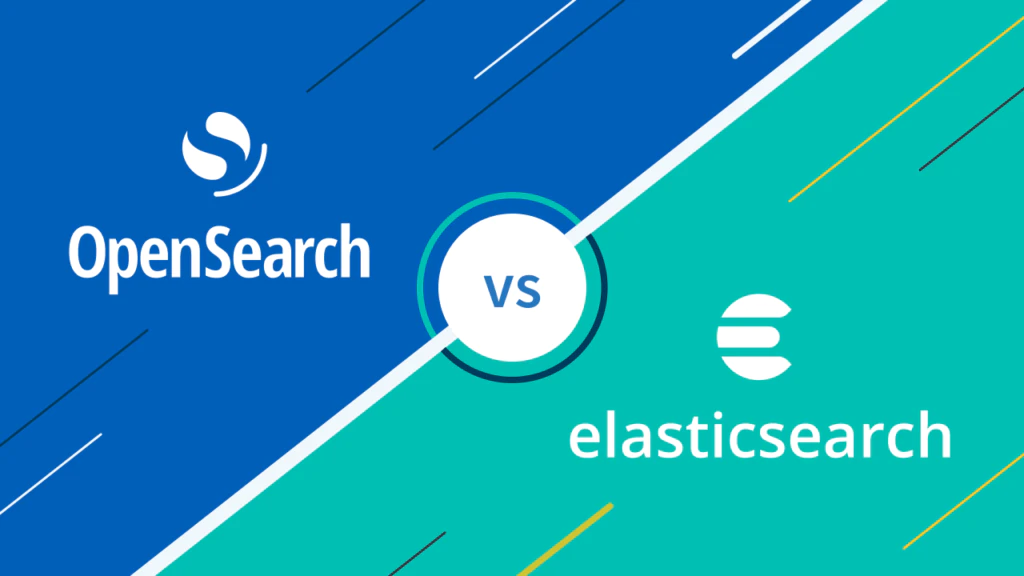
OpenSearch and Elasticsearch are powerful, open-source search and analytics engines used for a variety of applications, including log analytics, full-text search, and real-time analytics. This article provides a detailed comparison between OpenSearch and Elasticsearch, helping you decide which one suits your needs best.
Quick Navigation
Elasticsearch
Elasticsearch is a distributed, RESTful search and analytics engine capable of addressing a growing number of use cases. Developed by Elastic NV, it is built on top of Apache Lucene and is part of the Elastic Stack, which includes Kibana, Logstash, and Beats.
OpenSearch
OpenSearch is a community-driven, open-source search and analytics suite derived from Elasticsearch and Kibana. It was initiated by Amazon Web Services (AWS) after Elastic changed the license of Elasticsearch and Kibana from Apache 2.0 to SSPL/Elastic License.
Licensing
Elasticsearch
As of version 7.11, Elasticsearch is available under the Elastic License or SSPL, both non-OSI-approved. This affects how you can use, modify, and distribute it.
OpenSearch
OpenSearch is released under Apache 2.0—an OSI-approved license—ensuring it remains free and open for any use, modification, and distribution.
Features Comparison
Core Functionality
Both engines offer:
- Full-text search
- Distributed architecture
- RESTful API
- Real-time analytics
- Aggregation and querying capabilities
Plugins & Extensions
Elasticsearch: Includes proprietary plugins (X-Pack) for security, alerting, monitoring, and ML (commercial license).
OpenSearch: Offers open-source plugins such as:
- Security (authentication, RBAC)
- Alerting & anomaly detection
- Performance Analyzer
- Machine Learning
Compatibility
Elasticsearch: Newer releases may break backward compatibility; open-source builds stopped at 7.10.
OpenSearch: Forked from 7.10.2, maintains API compatibility for now, though divergence may occur over time.
Community & Support
Elasticsearch: Backed by Elastic NV, with official support and training; community contributions are more controlled.
OpenSearch: Community-driven with AWS leadership; fully open to external contributions.
Performance & Scalability
Both are built for high performance and scale. Initial benchmarks are similar since OpenSearch forked from 7.10.2, but future optimizations may differ.
Security
Elasticsearch: Advanced security via X-Pack (commercial).
OpenSearch: Security plugin built-in (Apache 2.0).
Visualization Tools
Kibana (Elasticsearch)
Kibana provides dashboards and visualizations (Elastic License / SSPL from 7.11).
OpenSearch Dashboards
Forked from Kibana 7.10.2, fully Apache 2.0–licensed.
Use Cases
- Log analytics
- Full-text search
- Monitoring & observability
- Real-time analytics
- E-commerce search
Installation & Setup
Elasticsearch
Download from Elastic’s site; versions > 7.10.2 require Elastic License or SSPL compliance.
OpenSearch
Download packages from the OpenSearch website or repos; Apache 2.0–licensed.
Pros & Cons
Elasticsearch Pros
- Mature ecosystem
- Official Elastic support
- Rich features (X-Pack)
Elasticsearch Cons
- Restrictive license
- Commercial plugin costs
- Complex legal terms
OpenSearch Pros
- True Apache 2.0 open source
- Open contributions
- Built-in advanced features
OpenSearch Cons
- Smaller ecosystem
- Potential API divergence
- Younger community
Which One to Choose?
- If you need a fully Apache 2.0 solution → OpenSearch.
- If you rely on Elastic-only features and accept SSPL/Elastic License → Elasticsearch.
- Consider long-term roadmap, community, and license constraints.
Final Thoughts
Both OpenSearch and Elasticsearch excel at search and analytics. OpenSearch guarantees open-source freedom; Elasticsearch provides deep commercial features under restrictive licenses. Choose based on your project’s feature needs, licensing terms, and support requirements.
References
Need Expert Help?
We’re here to support you and manage your tasks.






